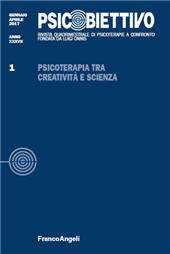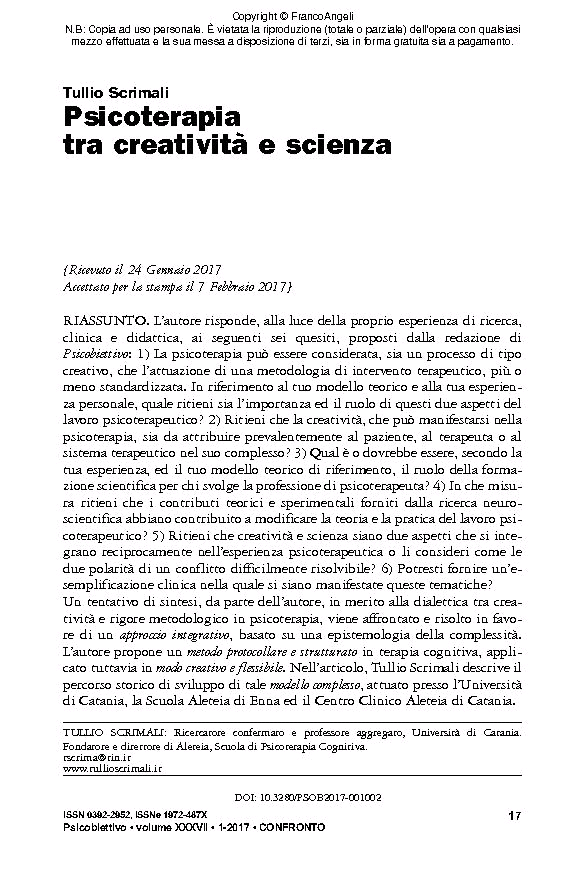Psicoterapia tra creatività e scienza
17-36 p.
The author responds, in light of his own experience in the research field, both clinical work and educational, to the following six questions, suggested by the Editors of Psicobiettivo. 1) Can psychotherapy be considered both as a creative process and as an implementation of a methodology for therapeutic intervention, more or less standardized? In reference to your theoretical model and based on your personal experience, what do you think about the importance and the role of these two aspects in the psychotherapeutic work? 2) Do you think that creativity, which can emerge in psychotherapy, can be attributed mainly to the patient, to the therapist or to the therapy process as a whole? 3) What is or should be, according to your experience and to your theoretical model, the role of the scientific development for those who study to become a psychotherapist?.
4) To what extent do you believe that the theoretical and experimental contributions from neuroscience research have helped to change the theory and practice of psychotherapy work? 5) Do you think that creativity and science are two aspects that complement each other, in the experience of psychotherapy, or do you consider them as the two polarities of a huge conflict, difficult to resolve? 6) Could you provide some clinical exemplifications in which these issues arise? The author proposes that the dialectic between creativity and methodological rigor in psychotherapy, should be addressed and resolved in favor of an integrative approach, based on a complexity-based epistemology.
For this reason, the author proposes a protocolled and structured approach to Cognitive Therapy, applied however, in a creative and flexible way. In the article, Tullio Scrimali describes the historical path of development of such a complex model, implemented at the University of Catania, at the Aleteia School of Enna and at the Aleteia Clinical Center of Catania. [Publisher's Text].
-
Articoli dello stesso fascicolo (disponibili singolarmente)
-
Informazioni
Codice DOI: 10.3280/PSOB2017-001002
ISSN: 1972-487X
MATERIE
PAROLE CHIAVE
- Psicoterapia, terapia cognitiva complessa, procotocolli terapeutici, neuroscienze, complessità
- Psychotherapy, Complex Cognitive Therapy (CCT), Therapeutic protocols, Neuroscience, Complexity



